We don’t all feel the need to justify the pizza we ordered last night or the latte you bought this morning at Starbucks, or for that matter, the new Honda CR-V your neighbours just leased. And although I wish to take a stand against the bizarre requirement reviewers and non-buyers have to calculate whether the purchase of a Chevrolet Volt can be justified (as though we all think the purchase of other $46,030 “assets” that depreciate could ever be justified) I really wanted to see how much money I could save during the abbreviated week in which a Chevrolet Volt was visiting GoodCarBadCar.
A full review of the nearly fully loaded Volt that GM Canada sent our way will be on GoodCarBadCar soon. Until then, I present you with an exhaustive look at the energy expended by the Volt during the five days it stayed in Eastern Passage.
Consider yourself temporarily deputized as an editor, as well. Check the math. Consider the facts. Keep in mind, most of the Volt’s miles were spent in the city, and it was driven spiritedly. Electric torque is so much fun. There were about 40 highway kilometres done at speeds around 105 kmh, or about 65 mph. Also, this Volt was fully run-in, topping 7200 kilometers while here. Overnight temperatures hovered just above 0ºC, daily highs reached between 3ºC and 6ºC.
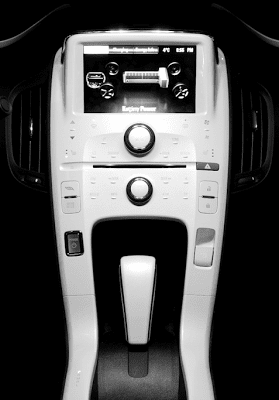 |
| All Photo Credits: Steffani Cain ©www.GoodCarBadCar.net |
Those highway miles came about during the second electric range test we performed on the Volt. In that case, the fully-charged Volt figured we had 49 kilometers (30.4 miles) of electric-only driving, and we managed to eke out 49.
At the beginning of our first fully-charged test, when the Volt was basing its estimated range on a previous driver and the circumstances in which he was driving, the Volt figured on a range of 47 kilometers (29.2 miles). We managed 65 km (40.4 miles) however, four more than the estimates produced by GM Canada and Transport Canada.
In the final test, the Volt had upped its fully-charged estimate to 50 km (31 miles), and after driving 34 km (21.1 miles), the Volt’s range had gained a single kilometer, figuring we had 17 remaining, not the 16 its initial estimate would lead you to believe.
Cars cost money. In comparison with other vehicles priced above $40,000, the rebate-less Volt (here in Nova Scotia) has the potential to save some money. Is it less costly to purchase a Chevrolet Cruze? Well, yeah. But the same could be said in regards to the Corvette buyer who could have saved money on a Camaro. The very idea borders on impertinent.
So take this moment to view the Chevrolet Volt as a very efficient alternative for the buyer who is considering a $44,000 Buick LaCrosse, which the Volt is capable of outselling in Canada. An alternative without power seats, or a sunroof, or a fifth seat. But an alternative, nonetheless. And stop acting like the Volt is what you buy when you don’t want a $21,000 Prius C. People don’t do that. At least I hope they don’t.
|
2013 Chevrolet Volt
|
March 10-14, 2013
|
|
Total Kilometers
|
230
|
|
Total Miles
|
142.9
|
|
Total Electric Kilometers
|
148.9
|
|
Total Electric Miles
|
92.5
|
|
Total Range-Extended Kilometers
|
81.1
|
|
Total Range-Extended Miles
|
50.4
|
|
Electricity Consumed ($0.1379/kW-hr)
|
33.8 kW-hrs
|
|
Litres Consumed ($1.444/litre)
|
6.164
|
|
Gallons Consumed ($5.466/gallon)
|
1.628
|
|
Overall L/100 Kilometers
|
2.68
|
|
Overall Miles Per Gallon
|
87.8
|
|
L/100 Kilometers
(Range-Extended Mode)
|
7.6
|
|
Miles Per Gallon
(Range-Extended Mode)
|
30.9
|
|
Overall MPGe
|
55
|
|
MPGe (Electricity Only)
|
93
|
|
MPGe (Range-Extended Mode)
|
31
|
|
Overall Cost Per Kilometer
|
$0.059
|
|
Overall Cost Per Mile
|
$0.095
|
|
Cost Per Kilometer (Electricity)
|
$0.031
|
|
Cost Per Mile (Electricity)
|
$0.05
|
|
Cost Per Kilometer
(Range-Extended Mode)
|
$0.11
|
|
Cost Per Mile
(Range-Extended Mode)
|
$0.177
|
|
EPA MPGe (Electricity)
|
98
|
|
EPA kW-hrs/100 Miles
|
35
|
|
EPA MPG Combined (Gasoline/Hybrid Mode)
|
37
|
|
EPA MPG City
(Gasoline/Hybrid Mode) |
35
|
|
EPA MPG Highway (Gasoline/Hybrid Mode)
|
40
|
RECOMMENDED READING
Real World Fuel Economy Testing In The Ford C-Max Hybrid SEL
Quick Spin: 2012 Chevrolet Volt
Historical Monthly & Yearly Chevrolet Volt Sales Figures
Historical Monthly & Yearly Nissan Leaf Sales Figures
Historical Monthly & Yearly Toyota Prius Plug-In Sales Figures


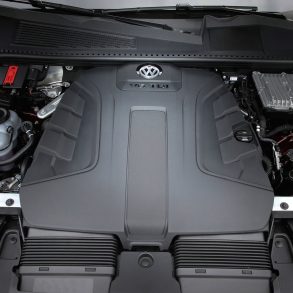
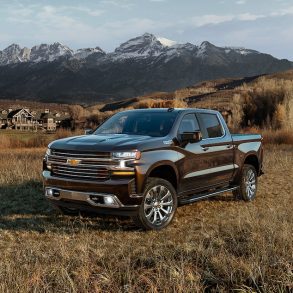

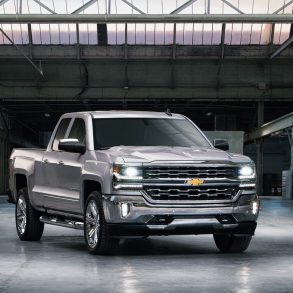

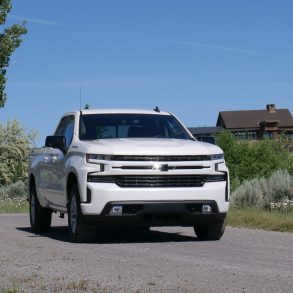
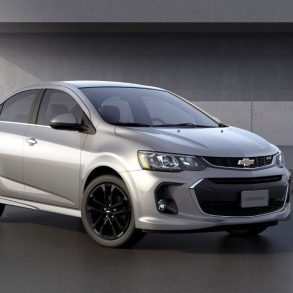
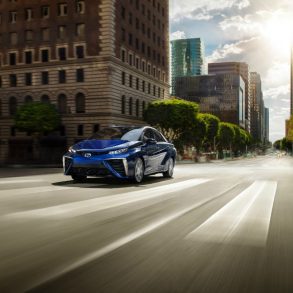
Greetings my friends at Good Car Bad Car, Mr. Cain and GCBC Readers,
We have two Chevy Volts' to study. We have the winter Volt that you base your current numbers on and we have the warm weather Volts' that will be here soon.
The best study of course takes numbers from both.
I have driven my Chevy Volt since March of last year. In the months of April through late October, the warmer months, I average 45-55
+ miles per charge- AER ( All Electric Range ).
Winter months, I average 26-30 miles per charge. While the cold weather volts' results are not that impressive the warm weather Volts return a spectacular savings.
Please test a warm weather Volt and average the numbers 60/40-
Best-
Thomas J. Thias
@AmazingChevVolt
I live in Austin Texas, with 27k miles on my 2011 Volt. The EPA tests indicated 35 mile electric range and 37mpg in extended mode. Except in the coldest days, I regularly achieve 35miles AER with spirited driving, HVAC on comfortable settings.. no sacrifices just fun. I have achieved 35 to 42mpg on the interstate in range extended mode driving our posted 75mph speed limit.. not babying it. I think the EPA tests are fairly accurate and potential buyers should understand that cabin heating (even more than A/C) can impact electric range. What I've never been able to find from any informed source is what the real world impact of the same cold weather on conventional vehicles? We know the range on the Volt can go from 35 or 38 down to the low 20's in really cold weather.. but what is the decrease in mpg for a conventional car under the same conditions? I know it's less of an impact because waste heat is free from a conventional engine.. but I wish we could see the data to see a fair comparison
In our review of the Infiniti JX35, cold weather and snowy conditions brought mileage down to 17 mpg, below even in its city rating of 18. For example. https://www.goodcarbadcar.net/2013/01/2013-infiniti-jx-qx60-test-drive-review.html
I am not so much knowledgeable in cars however, your post is so informative . Thanks for posting. For those who seek quality cars for sale in Texas, this is a good help.
There is no way to justify the cost of the Volt when compared to any compact car that gets 40+ mpg, hot or cold. If anyone wanted to drive 30 miles round trip then get a golf cart for $5,000 and bank the extra $40k.
My 2000 VW diesel has averaged 41.4 mpg for it's life(mostly small-city driving).150,000 miles so far. Bought it used for $13,000 with 30K miles. Farthest range on one tank….753 miles!! Got no need for a $40K+ vehicle that gets worse mileage and possibly have to replace batteries and an electric motor at some time plus upkeep on a gas engine and a gas engine that won't last as long as a diesel. But, feel free to keep lining up at the Kool-Aid bar.